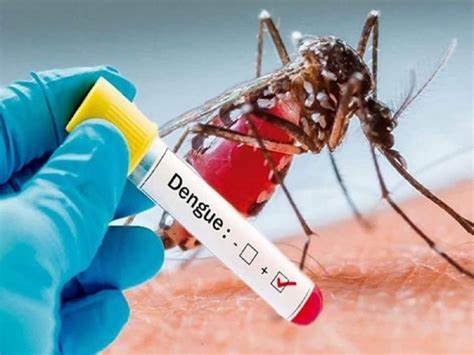As Assam battles the dual challenges of the Covid-19 pandemic and seasonal outbreaks of vector-borne diseases, health authorities are on high alert following a surge in dengue cases across the state. Since January this year, Assam has reported over 100 cases of dengue, raising concerns about the spread of the mosquito-borne illness. While there have been no fatalities attributed to dengue thus far, health officials are urging vigilance and proactive measures to prevent further transmission and protect public health.
Dengue fever, caused by the dengue virus transmitted primarily by the Aedes mosquito, is a significant public health concern in many tropical and subtropical regions, including Assam. The disease is characterized by symptoms such as high fever, severe headache, joint and muscle pain, rash, and in severe cases, hemorrhagic fever and shock syndrome, which can be life-threatening if left untreated.
The recent uptick in dengue cases in Assam has prompted health authorities to ramp up surveillance and control measures to curb the spread of the disease. Efforts are underway to identify and eliminate mosquito breeding sites, conduct insecticide spraying in affected areas, and raise awareness about preventive measures such as using mosquito nets, wearing long-sleeved clothing, and applying insect repellent.
Despite the surge in cases, health officials are cautiously optimistic that Assam’s robust public health infrastructure and proactive response measures will help contain the spread of dengue and prevent fatalities. Rapid diagnosis and prompt medical treatment are crucial in managing dengue cases effectively and reducing the risk of complications.
One encouraging aspect of the current situation is the absence of fatalities attributed to dengue thus far. This underscores the importance of early detection, timely medical intervention, and public awareness in preventing severe outcomes associated with the disease. Health authorities are urging residents to remain vigilant and seek medical attention if they experience symptoms suggestive of dengue fever.
In addition to dengue, Assam is also grappling with other vector-borne diseases such as malaria and Japanese encephalitis, which pose significant health risks, particularly during the monsoon season when mosquito breeding activity is at its peak. Health officials are adopting a multi-pronged approach to vector control, including the distribution of insecticide-treated bed nets, indoor residual spraying, and community-based surveillance and response measures.
Amidst the ongoing efforts to combat dengue and other vector-borne diseases, health authorities are also emphasizing the importance of community engagement and participation in prevention and control activities. Communities play a crucial role in reducing mosquito breeding sites in their surroundings, practicing personal protective measures, and seeking timely medical care in case of illness.
Furthermore, health officials are advocating for sustained investment in public health infrastructure, capacity-building, and research to strengthen the state’s preparedness and response to infectious disease outbreaks. This includes enhancing diagnostic capabilities, establishing surveillance systems, and implementing evidence-based interventions to mitigate the impact of vector-borne diseases on public health.
As Assam navigates the challenges posed by dengue and other infectious diseases, collaboration and coordination among government agencies, healthcare providers, community leaders, and the public are essential for a comprehensive and effective response. By working together and remaining vigilant, Assam can mitigate the impact of dengue outbreaks, protect vulnerable populations, and safeguard public health.
In addition, the recent surge in dengue cases in Assam underscores the ongoing threat posed by vector-borne diseases and the importance of proactive measures to prevent transmission and reduce the burden of illness. While the absence of fatalities is a positive sign, continued vigilance and concerted efforts are needed to contain the spread of dengue and protect the health and well-being of the population. With a coordinated and community-driven approach, Assam can effectively address the challenges posed by dengue and other infectious diseases, ensuring a healthier and more resilient future for all.



